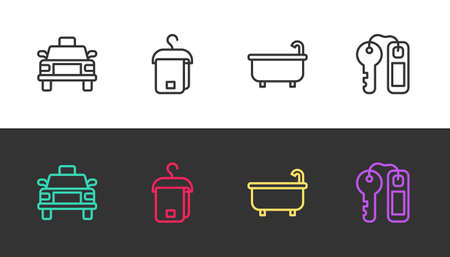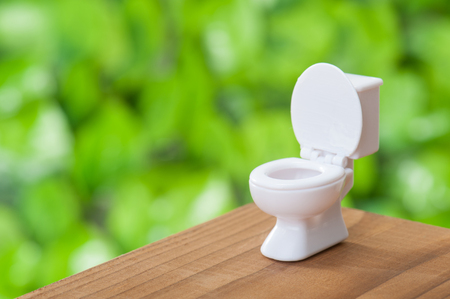Understanding UK Regulations on Toilet Waste Disposal
When it comes to camping in the UK, managing toilet waste responsibly is not just about being considerate—its a legal obligation. British campers must adhere to specific regulations set out to protect both public health and the environment. The Environmental Protection Act 1990 is a cornerstone piece of legislation, making it illegal to dispose of toilet waste improperly or in any location that could cause harm or pollution. Additionally, local councils across England, Scotland, Wales, and Northern Ireland may have their own by-laws or rules regarding waste disposal, often requiring campers to use designated chemical disposal points or sanitary stations found at campsites or service areas. Campers are also responsible for ensuring that portable toilets are emptied only at approved facilities and never into open watercourses, drains, or onto the land. Ignorance of these regulations isn’t accepted as an excuse—failure to comply can result in hefty fines or prosecution. Before heading out, it’s wise to check with your campsite and local council for any site-specific rules and always be prepared to follow the best practices outlined in the latest government guidance. Following these rules not only keeps you on the right side of the law but also helps preserve Britain’s beautiful landscapes for everyone to enjoy.
2. Types of Portable Toilets and Waste Disposal Options
For British campers, choosing the right portable toilet is crucial for comfort, hygiene, and environmental responsibility. The UK market offers a range of options, each with its own disposal requirements and best practices. Below, I’ll break down the main types you’ll find in British camping shops and online retailers, along with practical advice on how to dispose of waste correctly.
Chemical Toilets
Chemical toilets are among the most popular for caravans, motorhomes, and tent camping. These units use special chemicals to break down waste and control odours. They’re easy to transport and set up, but require access to designated chemical disposal points (CDPs) commonly found at campsites across the UK. It’s illegal to empty chemical toilet waste into public toilets or greywater drains—always use an approved CDP.
Pros & Cons of Chemical Toilets
| Feature | Pros | Cons |
|---|---|---|
| Convenience | Easy to use, widely available | Requires regular emptying and chemical refills |
| Odour Control | Excellent if maintained properly | Chemicals can be harsh on the environment if not disposed of correctly |
| Disposal Options | Plenty of CDPs on established sites | Limited options off-grid; never pour in nature or standard toilets |
Composting Toilets
Composting toilets are becoming increasingly popular among eco-conscious British campers. These units separate liquids from solids and use natural processes (often aided by sawdust or coconut coir) to break down waste without chemicals. Composting toilets require more space and attention to maintenance, but they significantly reduce environmental impact.
Best Practices for Composting Toilet Waste Disposal
- Solids: Only dispose of fully composted material in accordance with local regulations—some campsites allow it in green waste bins, others require off-site removal.
- Liquids: Can often be diluted and spread on non-food plants away from watercourses, but always check site rules first.
- No Chemicals: Never add chemicals intended for cassette toilets; this disrupts composting.
Bags & Bucket Systems (Basic Solutions)
The simplest portable toilets use heavy-duty bags or buckets lined with biodegradable liners. These are lightweight and suitable for wild camping or festivals where other facilities aren’t available. Waste should always be double-bagged and disposed of in appropriate refuse bins—not left in nature or flushed down standard toilets.
Quick Comparison Table: UK Camping Toilet Types & Disposal Routes
| Toilet Type | Main Use Case | Disposal Route (UK) | Key Regulation/Tip |
|---|---|---|---|
| Chemical Toilet | Sited pitches, caravans, campervans | Chemical Disposal Point (CDP) only | Never in public toilets or nature; blue/green chemicals as required by site rules |
| Composting Toilet | Ecolodges, off-grid setups, long stays | Follow site/local council guidance for compost/waste removal | No chemicals; keep liquids & solids separate when possible |
| Bags/Buckets (Liner System) | Tent/wild camping, emergencies | General landfill waste bin (double-bagged); some sites have dedicated bins | Avoid leaving bags outdoors; use certified biodegradable liners if possible |
Summary Practical Tip:
If in doubt about disposal routes while camping in the UK, always ask your campsite warden or check local council guidance before emptying any toilet waste. Responsible disposal keeps our countryside clean and ensures continued access for all campers.

3. Finding and Using Elsan Points
When touring the UK in your caravan or motorhome, proper disposal of toilet waste is not just about etiquette—its a legal requirement. Elsan points, also known as chemical toilet disposal points, are specifically designed for this purpose and can be found at most well-equipped campsites and some public facilities. To make your journey smoother, here’s how to locate these essential facilities and use them respectfully.
How to Locate Official Elsan Points
The easiest way to find official Elsan points is by checking campsite directories or booking platforms such as the Caravan and Motorhome Club, Camping and Caravanning Club, or Pitchup.com. Most listings will clearly state if an Elsan point is available on-site. For those wild camping or stopping at public spaces, look for signage indicating waste disposal or ask site staff for directions. Some motorway service stations and country parks also provide these facilities—just keep an eye out for dedicated signs.
Top Tips for Considerate Use
Elsan points are communal resources, so using them responsibly keeps the area pleasant for everyone. Always rinse the area after emptying your cassette to remove spills or residue—most points are equipped with a hose or water tap for this purpose (never use drinking water taps). If disposable gloves are provided, use them, and always dispose of any cleaning wipes or rubbish in the designated bins nearby. Never pour anything other than approved chemicals and toilet waste into the Elsan point, as household cleaners can damage septic systems.
Respect Local Rules and Community Spaces
Some rural sites operate septic tanks rather than mains sewage, so only use eco-friendly, non-formaldehyde chemicals in your cassette. If you’re unsure, check with site management before emptying. In all cases, leave the area tidy—if you notice any issues such as blockages or leaks, report them to staff promptly to help maintain high standards for fellow campers. By following these best practices, you’ll ensure that everyone can enjoy clean, accessible facilities across Britain’s beautiful campsites.
4. Environmental Best Practices for Wild and Remote Camping
When venturing into Britain’s wild spaces or remote areas, proper toilet waste disposal is not just a matter of personal hygiene—it’s about protecting fragile ecosystems and maintaining the countryside for future generations. Here are essential guidelines that every British camper should follow to minimise their environmental impact, based on Leave No Trace principles and responsible waste packing.
Leave No Trace: The Golden Rules
- Plan Ahead and Prepare: Know the regulations of the area you’re visiting and come equipped with the right waste disposal kit (such as portable toilet bags or trowels).
- Dispose of Waste Properly: Always pack out your waste where required, especially in upland, peatland, or protected areas.
- Respect Wildlife and Waterways: Never dispose of waste within 30 metres of water sources to prevent contamination.
Toilet Waste Disposal Methods in Remote Locations
| Method | How To Do It Right | Best For |
|---|---|---|
| Packing Out (Bag Systems) | Use ‘wag bags’ or biodegradable toilet bags; seal and carry out to proper disposal point. | All environments, especially fragile or high-use areas. |
| Catholes | Dig a hole 15-20cm deep, at least 30m from water/campsites/paths. Cover thoroughly after use. | Woodland or non-sensitive soil areas where regulations permit. |
Treading Lightly: Further Tips
- Avoid using non-biodegradable wipes; opt for plain toilet paper or natural alternatives and pack these out if possible.
- If using a cathole, scatter natural debris over the filled hole to discourage animals from digging.
Quick Reference: Responsible Waste Packing Checklist
- Biodegradable toilet bags (enough for each night)
- Trowel (if catholes are permitted)
- Scent-proof carry pouch or dry bag for used bags
- Hand sanitiser and biodegradable soap
By sticking to these best practices, you’ll play your part in preserving the beauty and health of Britain’s great outdoors—ensuring that wild camping remains sustainable, responsible, and enjoyable for all.
5. Kit, Gear, and Hygiene Essentials
Recommended Products for British Campers
When it comes to toilet waste disposal on the go, having the right kit makes all the difference. For British campers, a reliable portable toilet such as the Thetford Porta Potti or Kampa Khazi is a top choice—both are compact, sturdy, and easy to clean. Biodegradable waste bags (look for those labelled as suitable for UK landfill regulations) and eco-friendly toilet chemicals like Elsan Organic Fluid keep things simple and environmentally responsible. Don’t forget sturdy gloves, a dedicated cleaning brush, and sealable containers for used wipes or sanitary products.
Storage Tips: Keeping Waste Secure
Proper storage prevents leaks and unpleasant odours in your motorhome, caravan, or tent. Always use an airtight waste tank or cassette; make sure it’s regularly checked for cracks or worn seals. Store all toilet-related gear in a separate, clearly-marked container away from food and cooking supplies—many seasoned UK campers recommend a heavy-duty plastic box with a snap lid. After emptying your portable loo at a designated chemical disposal point (CDP), give it a thorough rinse with water and mild detergent before packing it away.
Personal Hygiene Routines on the Road
Maintaining good hygiene is non-negotiable when managing toilet waste outdoors. Use alcohol-based hand sanitiser after every trip to your portable toilet, especially if soap and running water aren’t available at your campsite. Bring plenty of biodegradable wet wipes (and bag them up for proper disposal) alongside regular toilet paper. It’s also wise to keep a small bottle of anti-bacterial spray handy to clean surfaces around your portable loo and wash hands before handling food. For longer trips across the UK’s national parks or wild camping spots, pack extra water specifically for cleaning both yourself and your equipment.
Top Tip:
Always plan ahead by checking your campsite’s facilities online before you travel—some UK sites have strict rules about chemical toilets and disposal methods.
By investing in the right products, following sensible storage practices, and sticking to robust hygiene routines, British campers can enjoy hassle-free adventures while respecting both legal requirements and the great outdoors.
6. Frequently Asked Questions and Common Mistakes
Answers to Common Camper Queries
Can I empty my toilet cassette anywhere in the countryside?
Absolutely not. In the UK, disposing of chemical toilet waste is strictly regulated. Waste must only be emptied at designated Chemical Disposal Points (CDPs) found on campsites, service stations, or specific facilities. Dumping waste in the wild, hedgerows, or public toilets is illegal and can result in heavy fines.
What chemicals are allowed in toilet cassettes?
Many sites across the UK now require environmentally-friendly or “green” chemicals, especially in National Parks and eco-sites. Standard blue formaldehyde-based fluids are not always permitted. Always check site rules before using any chemicals and opt for biodegradable products whenever possible.
Is it okay to use public toilets to empty a camping toilet?
No. Public toilets are not equipped to handle chemical waste and most councils strictly forbid this practice. It can damage plumbing systems and poses health risks to maintenance staff.
Pitfalls to Avoid: Lessons from British Campsites
Forgetting to Check Site Facilities Before Arrival
Many new campers assume all sites have CDPs, but smaller or wilder sites may not offer them. Always confirm before booking and plan your route with disposal points in mind.
Improper Rinsing After Emptying
Leaving residue inside your cassette can cause nasty smells and make future cleaning harder. Use dedicated rinse taps at disposal points—never use drinking water taps for this purpose!
Ignoring Signage and Local Rules
Differing regions and private sites may have unique disposal guidelines. Ignoring these can lead to awkward situations or even being asked to leave a site. Respect signage and always ask if unsure.
Real-World Tip:
If in doubt, ask the site warden or fellow campers who know the local lay of the land. Most seasoned British campers are happy to share advice and help you avoid rookie mistakes.

